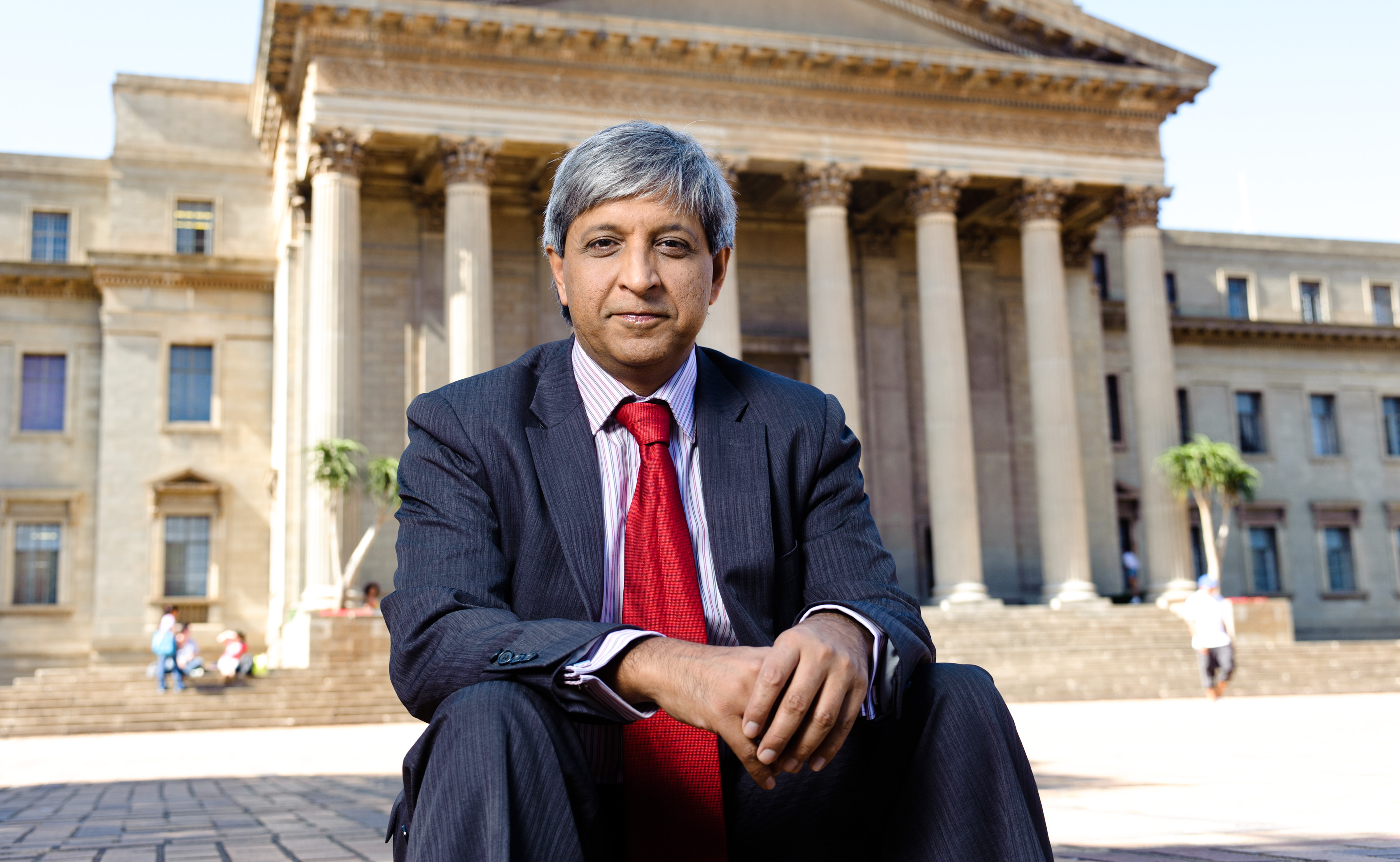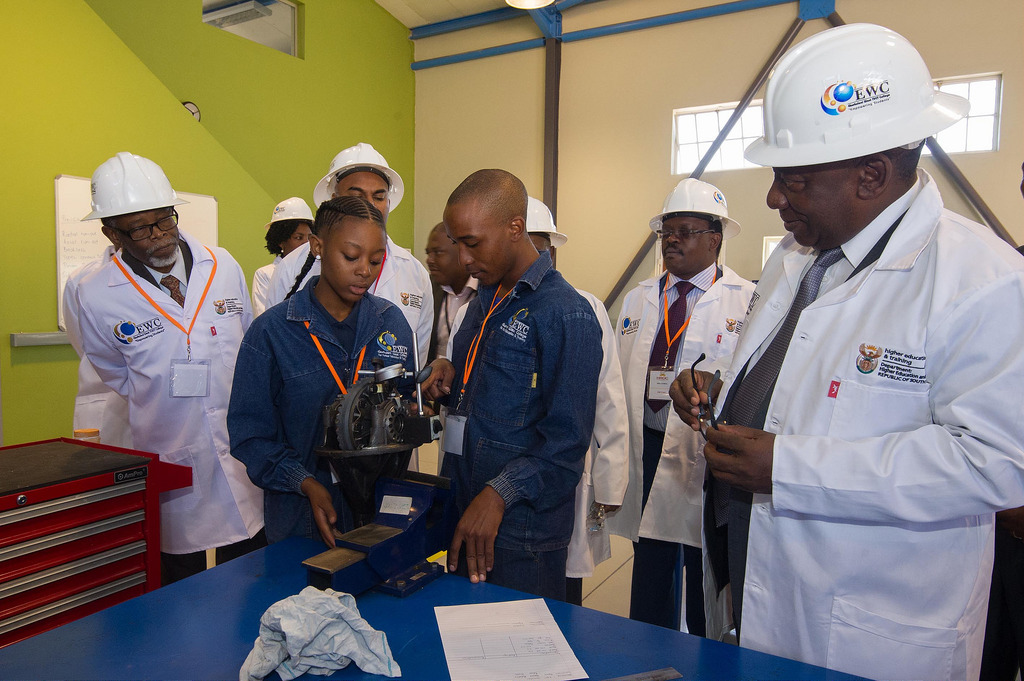October 2016 was a tense moment for Fees Must Fall. Students were protesting, police were making arrests, and universities were burning. Various peace talks broke down at the University of the Witwatersrand in October 2016. On October 19 student leaders took Wits Vice Chancellor Adam Habib’s presence at the talks, held in the Holy Trinity Church in Braamfontein, as an affront to the peace talk process. Student leader Vuyani Pambo said the students could not negotiate with Habib in good faith while the campus was militarised. The police had been arresting students at the time and had arrested another prominent student leader Mcebo Dlamini only days before on October 16.
Habib was chased out of the church that day.
The Daily Vox now publishes a short extract of Habib’s new book, Rebels And Rage: Reflecting On Fees Must Fall, where Habib gives his own version of the events.
But two events occurred to move us backwards. First, Mcebo was arrested on the morning of Sunday 16 October at the Junction Residence. Rumours had been circulating for a few days that an arrest was imminent. He was to appear in court two days later for a bail hearing, but bail was denied because the court did not trust that he would engage in peaceful protest.
Second, ASAWU [Academic Staff Association of Wits University] decided to hold a peace meeting with community leaders at the Holy Trinity Church with the intention of bridging the divide between the protesters and the executive management. Ironically, this involved some of the very individuals who had sat on the stage some days earlier and committed to the agenda of the student leadership. Now, they hoped to play the role of bridge builder. But there were also other individuals who had now become involved in the ASAWU initiative, including Vishwas Satgar and Michelle Williams. I expressed concern to Vishwas that the meeting would be captured and ran the risk of reigniting the protests just as we were stabilising the campus.
The ASAWU leadership had also formally invited the executive to the meeting. This put us in a dilemma. On the one hand, we were convinced that the event would be captured and that we would either be evicted or taken hostage. On the other hand, to decline the invitation would result in accusations that we were opposed to a peaceful resolution to the impasse. We were damned, whichever way we responded. Reluctantly, the executive and I agreed to attend, fully realising that the meeting could turn into a debacle.
This is what Adam Habib said about access to higher education
We took precautions, of course. A security protocol was developed to evacuate executives if necessary. Security personnel were stationed in the audience to provide support in a hostage scenario or if violence was to break out. Fatima and I had a huge argument about the event. She wanted to attend it with some friends as the broader public had been invited. I opposed this, not wanting to be distracted by worrying about her safety. We eventually agreed that she would give the event a miss.
On Wednesday 19 October, Tawana, Zeblon and I arrived a few minutes before the designated time for the peace meeting at the Holy Trinity Church. We were ushered into the offices where a meeting was clearly underway between one of the students, Anzio Jacobs, and some of the organisers, including Vishwas and David Hornsby. Community leaders like Jay Naidoo were also present. I had met Anzio once before in April 2016. He had requested a meeting in which he had expressed concern about our strategy for containing the protests, and wanted us to align with the student leadership in the struggle for free education. This, of course, was the usual refrain of the #FeesMustFall activists and their supporters, without any reflection on the fact that we had tried that very strategy just over a week ago without much success.
My own view is that many who suggested this, including Anzio, assumed that they had greater influence than was really the case, and were unaware that they were playing to a political tune that was not of their design. In any case, after a few minutes an EFF student leader, Busisiwe Seabe, walked in. Judging by the look on her face, she was taken aback by my presence. She turned on Anzio accusingly; he protested his innocence.
But just then, the organisers of the meeting came in and started to usher us towards the church entrance. By the time we reached the entrance, Vuyani Pambo was there. Clearly, he had been briefed by Busisiwe. He turned on David, accusing him of duplicity because of my presence. I ignored their verbal altercation and walked into the church with a sense of foreboding, realising that very little of the political work had actually been done to make this meeting a success.
A response to Wits VC’s open letter on university protests
I sat down in one of the front pews as cameras swirled around me. I was accompanied by Father Anthony Egan, whom I had known for many years and whom the church seemed to have deployed to my side for the duration of my presence there. Around me were journalists and documentary makers, including Rehad Desai. I had met many of them before, and could even describe some as friends. Clearly, they were anticipating some drama. You could feel it in the air. They were not disappointed. As the meeting began, Vuyani muscled his way to the front and took over the podium. In his usual flamboyant language and with his penchant for dramatic spectacle, he called me a sinner in the church, blamed me for Mcebo’s arrest, and said that the students would not be ambushed into engaging with me.
Within minutes, I was surrounded by a mob hurling abuse and insults. Father Pugin tried to calm the crowd, calling on his status as both a leader in the church and a victim of the police, but there was now no pulling back. The church leaders had been out-manoeuvred.
The ASAWU leadership, ashen-faced and also outmanoeuvred, scrambled out of the way. Vishwas tried to calm the crowd. Three people came over and stood by me throughout the period. Father Anthony was there, as was Sello Hatang from the Nelson Mandela Foundation, and Michelle, who reassuringly put her hand on my shoulder. By this time, a mask had descended on my face. I had long ago learnt that, in moments like these, you neither flinch nor react. You remain calm and gaze directly at the individuals hurling the abuse.
After a few minutes of standing there, without a response, in the glare of the cameras, Vuyani said that he wanted no violence and that he and the other students would leave the church and give me an opportunity to exit. Thereafter, they would return. When he left, taking with him the most aggressive of the students, I exited through the back of the stage and made my way to a kitchen hall next to the chapel. Tawana and Zeblon left with me. Together, we waited for the director of Campus Protection Services, Mokgawa Kobe, and the security team that had been called.









